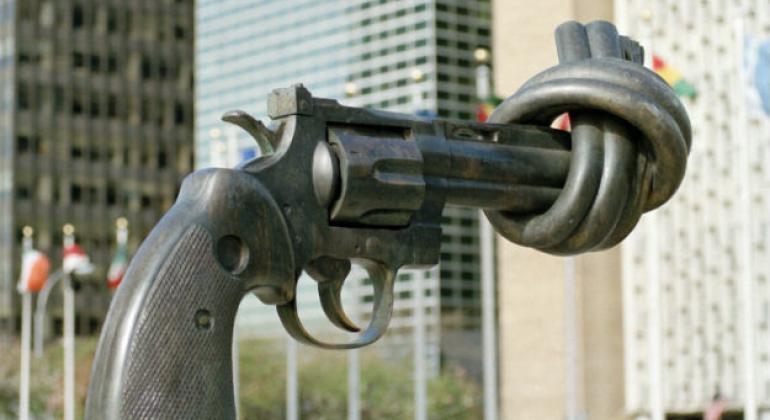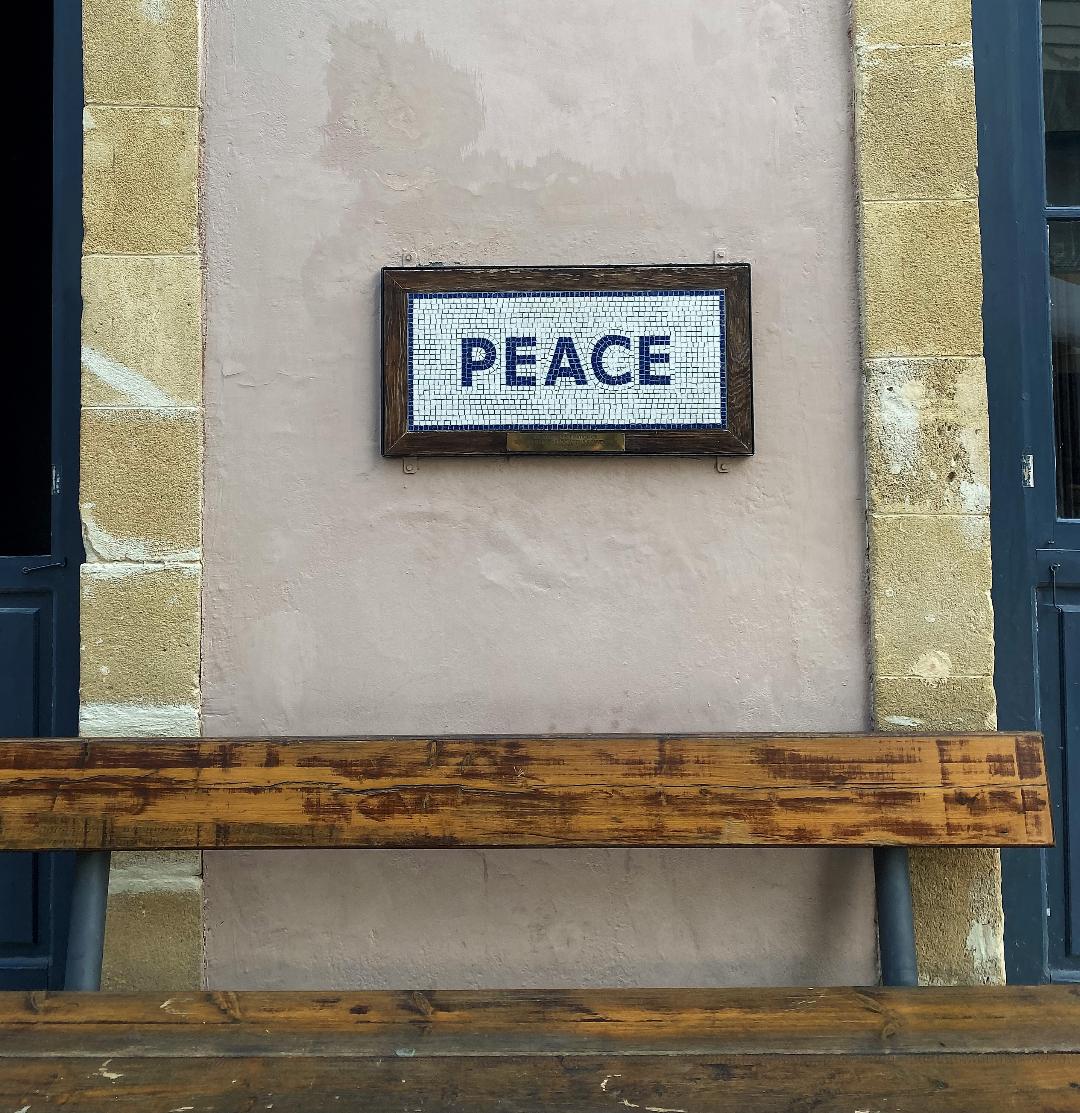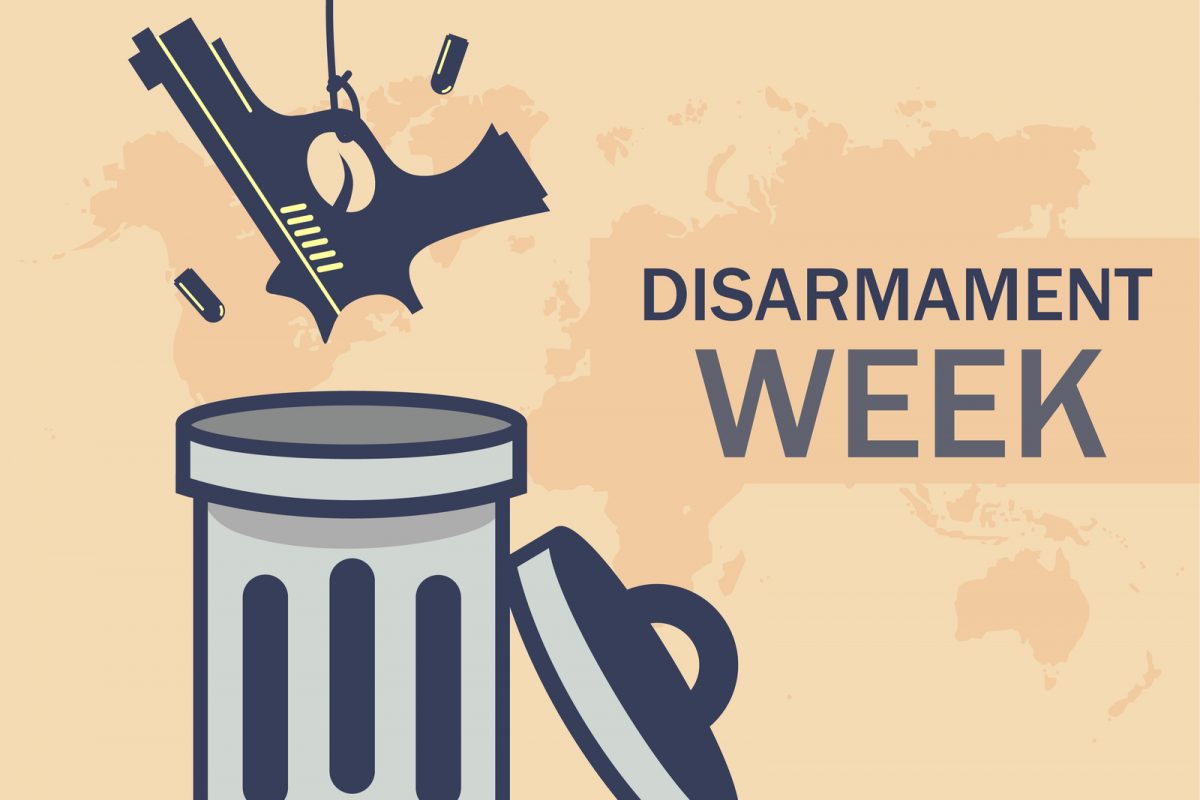By Erika Koutroumpa,
The Second World War seemed not to have a victor, but instead just losses on both sides. With most countries wrecked after the six years the war lasted, the consensus was that conflicts of this scale must be avoided at all costs. This need led to the birth of the United Nations in 1946, a replacement for the less effective League of Nations, where all member states decide on important topics as a unit, persuading each other through the art of diplomacy.
Since the establishment of the institution on 24 October 1946, many of its efforts have been centred around gradually reducing the armed forces of its member states, down to the size of just having a necessary police force. This process is called demilitarization and is considered the best way to prevent armed conflicts and hence a more robust world peace. It is such a focal point of the purpose of this institution that it has led to the creation of its own General Assembly committee (GA1) and the Conference on Disarmament, a single multilateral negotiating forum.
Despite the catastrophic results of the war, public opinion towards disarmament remained sceptical, and the goal of even partial disarmament seemed far away. Via a resolution voted in 1978, the organization established disarmament week, aimed at promoting the agenda of demobilizing the army of the member states. The first day of the week coincides with the day of the foundation of the United Nations, which coincides with United Nations Day.

Each year, starting on October 24th, the delegations of member states come together to reflect on current progress and to promote the importance of disarmament. The attitude of the United Nations towards this objective is relative to the 2030 sustainability goals and the current secretary general’s agenda. In 2018, the man currently in the position, Antonio Guterres, announced his four main goals for disarmament. These consist of: the elimination and prevention of the creation of nuclear weapons and other weapons of mass destruction, addressing of illicit arms trade, promotion of ethical innovation in science and technology, strengthening public efforts for disarmament, and ensuring the participation of groups, such as the youth and women.
According to the Hiroshima Report, the number of nuclear weapons worldwide in 2019 amounted to 13,895, a 27% per cent decrease compared to 2013. Additionally, after the end of the Intermediate-range Nuclear Forces treaty in 2019, Russia and the United States of America have renewed the New Start treaty, agreeing to a five-year extension up to 2026. Despite that, developments in disarmament remain slow. Currently, there are 21 non-international armed conflicts in Asia, more than 45 in the Middle East and North Africa, 35 in Africa, 6 in Latin America and 7 in Europe.
These include major disputes such as the war in Ukraine, the situation in Palestine, and the Nagorno-Karabakh territorial dispute. What is more, the COVID-19 pandemic has amplified the impact of humanitarian disasters, affecting the citizens’ well-being and pushing the economy of many countries to the breaking point. Furthermore, North Korea received heavy criticism for chairing the Conference of Disarmament in June 2022, while maintaining a nuclear arsenal and is rumoured to be testing nuclear missiles.

To conclude, everyone has a right to live in a country that is safe and free of war. While the efforts for world peace until now are non-negligible, there is still a long way to go. Disarmament seems as the optimal solution towards a more peaceful and secure future. Hence, it is now more important than ever to reflect on the importance of non-violent resolution in international conflicts and to use this Disarmament week to promote this message. Hence, it is now more important than ever to reflect on the importance of maintaining a balance in international affairs and to use this Disarmament week to promote this message.
References
-
Outrage as North Korea takes helm of world disarmament body. theguardian.com. Available here
-
United Nations Disarmament Yearbook 1985, pp 447-465, United Nations Office for Disarmament Affairs, December 1985.
-
Nuclear Disarmament is progressed or stagnated?. hiroshimaforpeace.com. Available here
-
New Start Treaty, U.S. Department of State. Available here
-
10 conflicts to watch in 2022. crisisgroup.org. Available here




